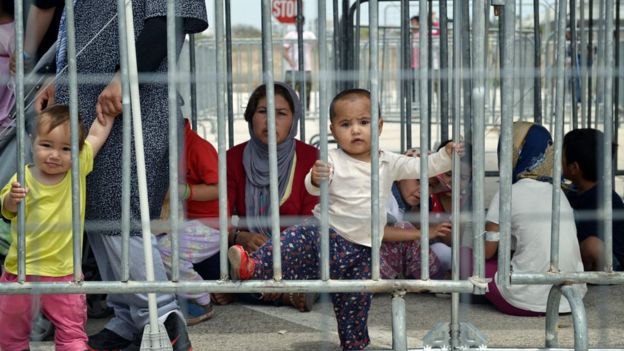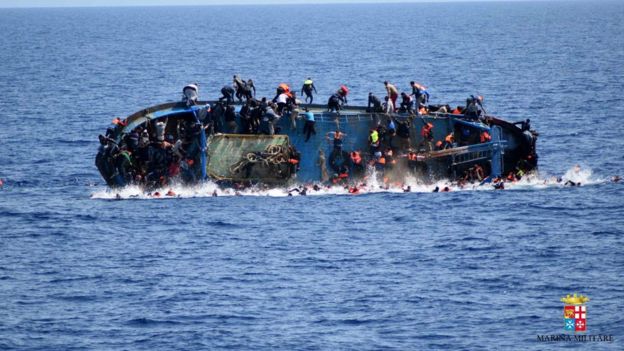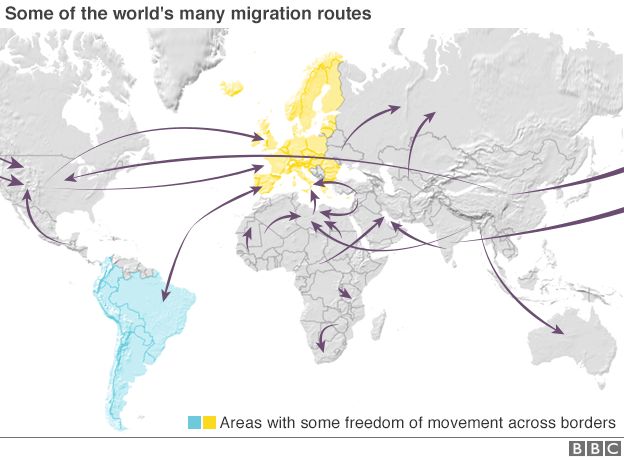The number of people displaced by conflict is at the highest level ever recorded, the UN refugee agency says.
It estimates that 65.3m people were either refugees, asylum seekers or internally displaced at the end of 2015, an increase of 5m in a year.
This represents one in every 113 people on the planet, it adds.
Meanwhile, the UN refugee chief says a worrying "climate of xenophobia" has taken hold in Europe as it struggles to cope with the migrant crisis.
The influx of people, the biggest since World War Two, has led to greater support to far-right groups and controversial anti-immigration policies.
In its annual report marking World Refugee Day, the UN said it was the first time ever that the number of refugees worldwide passed the 60m mark.
Over half of all of them came from war-torn Syria, Afghanistan and Somalia, it added.
Migrant crises through history

Europe has introduced a number of measures to curb the influx of migrants and refugees
Despite the huge focus on Europe's migrant crisis, the UN said 86% of the refugees were being sheltered in low and middle-income countries.
It pointed out that Germany received the most asylum requests, reflecting what was described as the country's readiness to accept refugees.
More than 1,011,700 migrants arrived in Europe by sea last year, according to the International Organization for Migration (IOM), although other agencies put that number much higher.
Some 35,000 arrived by land, the IOM said.
The preferred destination for most of them were richer northern countries like Germany and Sweden.
'Climate of xenophobia'
The crisis has caused significant political rifts within the EU, with some states inside the border-free Schengen area putting up fences and reimposing frontier controls.
The European bloc reached an agreement with Turkey in an attempt to stem the flux, a deal that has been heavily criticised by human rights groups.

Thousands of people continue to make dangerous journeys in trying to reach Europe

Source: bbc.com


